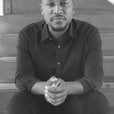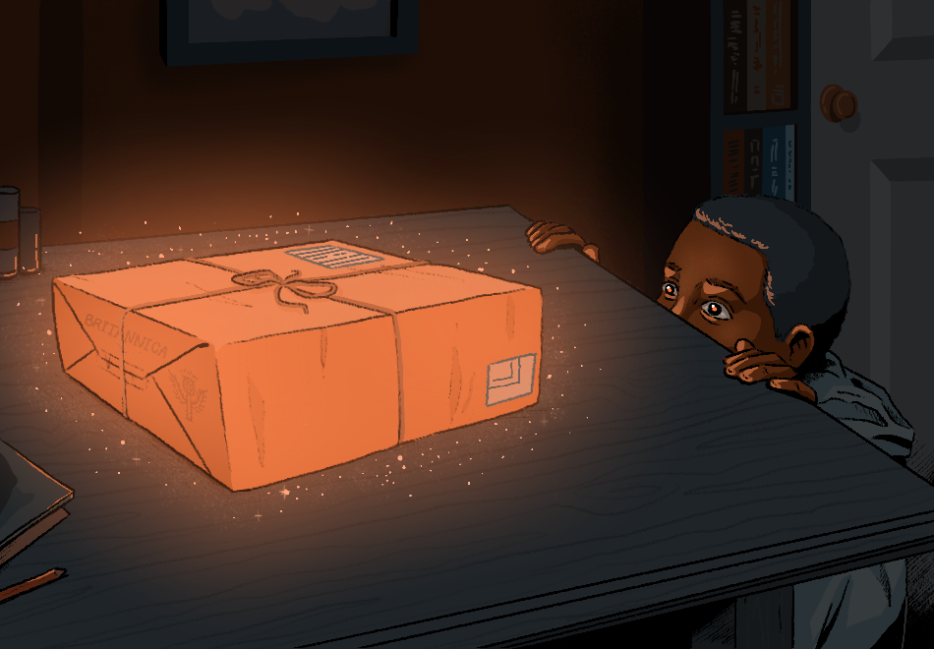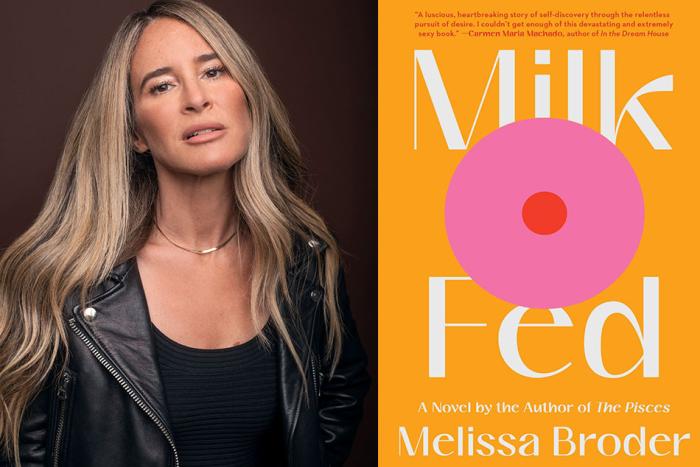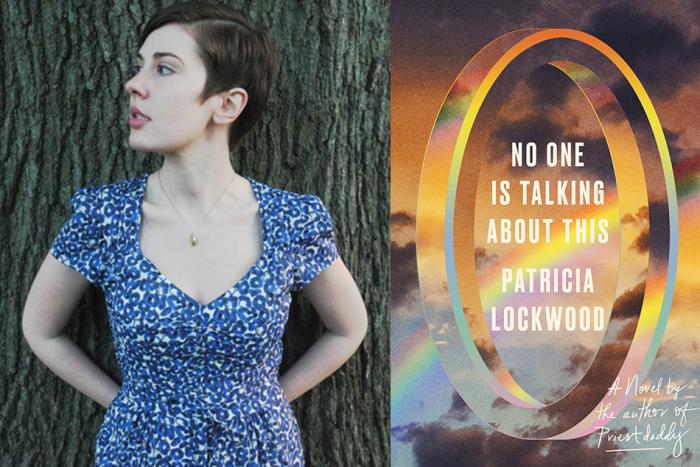“If there was nothing, there was everything to be made.”
Derek Walcott, What the Twilight Says
I was ten years old, living an unremarkable life, in an unremarkable rented townhouse, in an unremarkable part of Toronto, when my mother, in her own way, showed me how reading could save my life.
One day, a small package arrived encased in cardboard. It looked serious. It had an aura about it. I knew not to trouble it—besides, it wasn’t addressed to me. My mother said nothing about the package for several days. It remained on our kitchen table, stolid and puzzling, radiating mystery like a moon rock.
Eventually, I was given permission to open the parcel as my mother and sister looked on. Inside was a burgundy-bound hardcover book with inlaid gold font on the cover: World Book Encyclopedia.
“If you read enough books like this, you’ll be somebody one day,” my mother said. I looked at it, sliding a probing finger along its spine as she continued: “Don’t you want to be somebody?”
I immediately ran up to my room and hunkered down with the book. I flipped through a dizzying array of articles, mesmerized by photos and random facts, delighting over biographical entries. This went on for some time. Mother must have purchased the encyclopedias on a pay-as-you-go plan. The books seemed to come whenever they pleased. The “A” volume might arrive in January; “E” and “D” came in April. “B” arrived, inexplicably, in late summer. So my reading, even at the very beginning, was always sporadic, always eclectic.
In those encyclopedias, I found a much-needed lifeline from the sadness and isolation that had silenced my home. My mother and sister were depressed and mostly alone in the world. I didn’t know why this was; I didn’t know the origins of their maladies. But I knew our lives weren’t like others; I knew we were somehow marked by difference. Because of their struggles—and by extension, my own—we lived on a veritable island. Few people entered our home, and, with the exception of going to school, church and work, we seldom ventured out.
While visitors were scarce, books found a way in. With time, I moved beyond my fascination with the encyclopedias, only to find myself completely enthralled with Bible stories and then comics. With my meager allowance, I started to buy my own books. I collected all the Choose Your Own Adventure, Beverly Cleary, and Judy Blume books I could lay my hands on. I developed an early love of reading newspapers and Reader’s Digest, even if I didn’t always understand everything I read. As a child, I didn’t know of any Black writers; I could not have conceived of them back then. But as I moved into my teen years, I discovered popular books by Terry McMillan, Walter Mosley, and later, a much-loved volume of African myths and folktales. In time, a whole universe of Black writing started to emerge.
In our cloistered existence, this early reading cast a revealing glow upon my own life, so that when I witnessed my mother struggle to come up with rent, or if there was no food in the fridge, or if the silence of our home became too much to bear, I would remember how the people I read about had endured their own struggles and ordeals with grace and fortitude and, most crucially, with a sense of humour.
Recently, I discovered what Frantz Fanon wrote in The Wretched of the Earth: "Sometimes this literature of just-before-the-battle is dominated by humour and allegory; but often too it is symptomatic of a period of distress and difficulty, where death is experienced and disgust too. We spew ourselves up, but already underneath laughter can be heard.”
As a child, searching for a way into something that might resemble happiness or normalcy through reading, I loved to listen for this laughter.
II
I didn’t come from a family—immediate or extended—of readers. They were always too burdened and consumed with eking out livings and raising children to be readers in pursuit of anything that might be called pleasure.
My cousin Eddie, who was almost my mother’s age, was the only exception. He was the only semi-serious reader I knew growing up.
Eddie was unique. The lone wolf in the family, he had been swept up in the Black Arts movement in the ’60s after arriving in Canada. He was known, I’ve been told, to wear the occasional dashiki and to speak openly and brashly of white people being untrustworthy. He was forever writing a book—a grand novel—even though no book ever materialized.
Eddie was opinionated in that way readers often are, and he had a habit, whenever he saw me, of telling me what I should be reading. “Books are weapons,” he would tell me with a whimsical smile. “Never be without one.”
It was Eddie who gave me a copy of V.S. Naipaul’s masterpiece, A House for Mr. Biswas, the story of a man whose ambitions to be a writer and homeowner in pre-independence Trinidad and Tobago were frustrated by family entanglements and deep-rooted expectations within his Indo-Caribbean culture. It was the first book of fiction I read that felt close to my own Caribbean heritage. I understood its setting and themes intuitively. I knew, intimately, the daunting chasm that lay between Biswas’s desires and his material circumstances. I devoured the book.
Even though the Indo-Caribbean experience was not mine, I knew it belonged to a broader, transplanted Caribbean experience that had nurtured me growing up. I knew well that sense of striving against poverty, that desperate need to overcome the cramping smallness of family life while clinging to some form of dignity. My mother had demonstrated this kind of holding on in so many ways.
Of course, I knew nothing of Naipaul’s bigotry at the time. That knowledge came much later. But what endures about his novel is its comic power. Infused with a biting and unique brand of humour Trinidadians refer to as picong (from the French, piquant), the book was the first in a long line of works that illuminated for me how humour can help us to persist and strive against significant odds. It was the first book to show me that life’s challenges could be laughed at, could be made light of through storytelling, even when life was bitterly unfair and cruel. Through humour, I eventually came to realize, we display our understanding of what it means to be human.
I wouldn’t have been able to define or use a big word like tragicomedy back then, but I knew it in the way one knows a thing without having words to describe it. As I moved through that early reading, I felt like I was being let in on a secret, a feeling I can now recognize as something deeply subversive. I knew that the stories mocked a rigged world, an existence I’d always felt in my gut was gerrymandered. I knew that these stories used humour—sometimes straightforward, sometimes dark—as code among those who had shared in struggle and disappointment. I knew that the use of jokes and playfulness were not merely comic relief but were meant to uplift and encourage, were meant to provoke movement in our thinking about our circumstances and ourselves, even when everything surrounding our lives seemed immovable.
George Lamming’s In the Castle of My Skin had a similar impact on me. The story of “G”, a young man coming of age in a small village in Barbados, could easily stand in for what I have learned about my mother’s childhood. The narrative sings with delightful humour, even when relating stories of disastrous floods, of illness, and of entrenched poverty. Play and buoyancy are at the core of Lamming’s coming-of-age tale; there is a spirit of “getting over” by way of tenderness, through smiling or smirking knowingly in the face of colonial oppression. The novel’s magic lies in the way it shows the sheer stupidity of British colonial life: the manner in which it exposes its bizarre norms and racist plantation logics, and the ways in which it examines how conformity to imperialism stunts and narrows one’s life.
Ousmane Sembène’s God’s Bits of Wood, Wole Soyinka’s play Death and the King’s Horseman, and Samuel Selvon’s The Lonely Londoners—where the experiences of West Indian emigrants arriving in England during the 1950s are characterized beautifully through devastating satire—are some other examples of what I loved to read: literary expression through humour.
These writers became the shibboleths of my university experience, where, now in the company of other Black students who also viewed books as refuge, my reading became more political. In my twenties, beyond the isolating silence of my mother’s home, reading took on a different purpose. At a friend’s small apartment, just off campus, a group of us would converge to discuss books, art, and the politics of the day. Laughter masked our worries about unpaid tuition and already damaged credit scores. Essays were due, but the reading and book swapping and learning we indulged in together somehow seemed more important. Amid the tumult of our dubious prospects, we relied on our books as anchors of joy. We turned constantly to humour like castaways looking for shore.
I found similar books at the public library. I sustained myself there for hours on snacks and water until lights were flickered for closing time. There I discovered the work of Derek Walcott, Ngũgĩ wa Thiong’o, Doris Lessing, Chinua Achebe, and closer to home, Dionne Brand, Lillian Allen, Dany Laferrière, M. Nourbese Philip, Cecil Foster, among others. I came into a startling and liberating understanding of “post-colonial” literature. I learned that my Blackness was not only Caribbean or Canadian, but diasporic as well.
Reading became an addiction, attending my lectures and seminars, a distraction. The university never felt safe for Black students, but we found community in the undercommons.
Harold Bloom once wrote that reading is a “selfish rather than social” practice. This was the exact opposite of our experience. For us, reading was entirely social. We had no money. We struggled—sometimes with family and partners, sometimes to buy books or food, sometimes within our own minds. We were in the university, utterly unconvinced of our welcome. But our books and the raucous and supportive circles of love and laughter they helped to create were our salve, our salvation.
III
Because my mother was from Barbados, the late Barbadian-Canadian novelist Austin Clarke reserved a hallowed place within that formative reading. The brilliant and unbearably funny Growing Up Stupid Under the Union Jack may have been one of the first autobiographical books I read, followed closely by The Autobiography of Malcolm X.
In Clarke’s novel, The Meeting Point, I encountered the protagonist Bernice Leach, a domestic worker who runs up against the many racial and cultural pitfalls that Black people faced in 1950s Canada. She may as well have been my Aunt Lu, who also suffered bad treatment at the hands of a Jewish housewife under the notorious Domestic Scheme. My aunt was reluctant to talk about her experiences, but I had Clarke’s novel to fill in the gaps.
Clarke was particularly special because he sparked in me (and others who aspired to write) the notion that such an ambition was possible, if not entirely plausible, for Black people in Canada. He was of an older generation, yes, but he was one of us, and we claimed him proudly. There was something about his unlikely achievement in becoming a leading man of letters that made the vocation of writing both worthy and admirable. And, more importantly to me, his early stories were terribly funny. In Clarke’s early work, particularly the short stories, his characters understood how badly the cards had been stacked, how utterly uninviting and inhospitable their so-called new homes could be. But they possessed an indomitable spirit, a “wink-wink” fortitude that was delightful to discover.
But this literature has changed. At some point, the humour stopped and the laughs dried up. I recall reading Clarke’s Giller Prize-winning novel, The Polished Hoe, published in 2002, and realizing—not without a deep sense of loss—that a decidedly somber shift had taken place in Black Canadian writing.
When I read contemporary Black Canadian literature, it feels like there are no obvious equivalents to that marvelous, comedic bent that was so central to its formation. Certainly, Black Canadian writers—some whose heritage is once or twice removed from the Caribbean or Africa or other parts of the world—have produced a number of well-regarded books across multiple genres over the last few decades. And the melancholic themes they have taken up no doubt provide an important window onto the ongoing struggle for Black freedom. But in reading more recent works—both fiction and non-fiction—there are moments when I struggle to connect such themes to the humorous, vibrant, and playful literary tradition that preceded them. Thinking now of how that previous reading sustained me, and reflecting on how it provided a much-needed respite from worry and depression, I go in search of a comedic romp or a satirical yarn or a tragicomic tale, but there are none to be had—only notes of despair that seem to have become the default tone of our literary production.
These recent works aim to take up the seriousness of our times. That much is clear. Sentences, poetic lines, and paragraphs are weighted down with this seriousness. Theoretical concepts like afro-pessimism, critical race theory, post-modernism, queer theory, and other big ideas from the university underlie their narratives, undergird their plots. The work openly demands that we take it seriously—maybe a little too seriously.
IV
As a writer myself, I often wonder about what other writers ponder.
What do emerging Black writers in Canada think about? Do they focus on being taken seriously by literary agents, editors, publishers, and, later on, their readers? Does this commitment to seriousness influence and sometimes restrict their imaginative labour? Does it form a kind of literary lodestar? Do they think of tradition, of where their work is situated? Are they aware of what has come before? Does that even matter?
I don’t know. The truth is these are really questions more suited to the critic than the writer. The writer pulls on personal experience and knowledge to produce something of value. That is all. Why it is that comedy has largely disappeared from Black Canadian writing is a socio-cultural question that exceeds the writer’s purview. Writers do their best to craft narratives derived from specific frames of reference. Ultimately, it is the role of the critic to situate and assess the quality of the work, to think about relation.
And that has always been part of the challenge with Black writing in Canada. Beyond those who work within university departments, there are few Black literary critics capable of assessing the value of such writing. There is no critical mass of popular Black critics who might show how such writing is connected to works that have come before, how recurring themes of struggle and survival have been nurtured across a varied landscape of literary modes and textures, including comedic ones. I suspect the mostly humourless tonal strain found in Black Canadian writing today is the result of a kind of cultural amnesia, an inability to remember, and therefore respond to, a rich and complex literary tradition. It is also, if I may say so, evidence of an overreliance on academia—and its particular language and intellectual concerns—to do the heavy-lifting of supporting and promoting Black writers within a Canadian literary landscape that continues to marginalize Black artistic labour. And, certainly, the proclivities and tastes of white editors, agents, and publishers have played a significant role in putting out books that centre Black suffering over humour and joy.
But perhaps my decline in reading, my dimming of delight, warrants no alarm at all. Perhaps the comedic power of that early writing has worked itself out, and perhaps it may return at some later point. Perhaps the turn to darker, more weighted narratives in Black Canadian literature answers a crucial call. Maybe such books mine new themes, ones more relevant to our urgent times. And maybe my notion of the joyous function of literature, in the way I thought of it in that wonderful formative reading, has finally come to an end. And maybe that’s perfectly fine.






